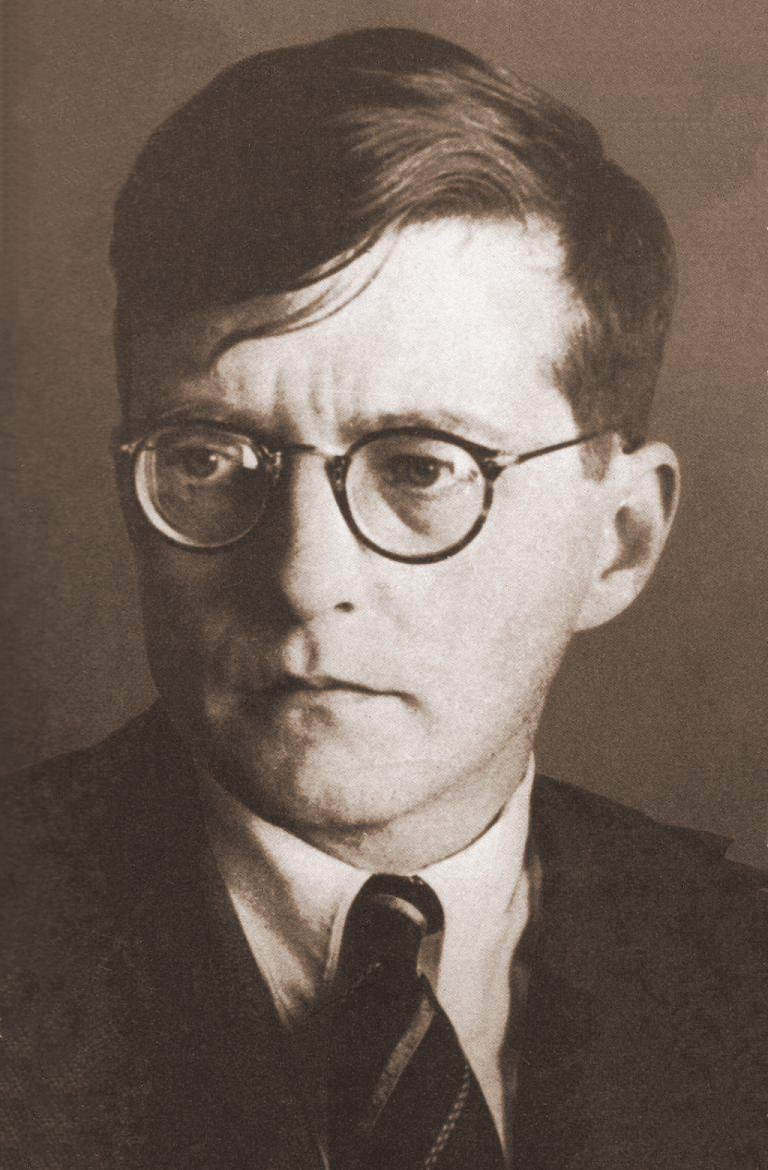 August 9 marks the 38th anniversary of the death of Dmitri Dmitriyevich Shostakovich. Never a particularly healthy man, what got Shostakovich in the end was lung cancer, the result of a lifetime of chain-smoking those foulest-of-foul “papirosi”: cardboard-tipped Soviet cigarettes.
August 9 marks the 38th anniversary of the death of Dmitri Dmitriyevich Shostakovich. Never a particularly healthy man, what got Shostakovich in the end was lung cancer, the result of a lifetime of chain-smoking those foulest-of-foul “papirosi”: cardboard-tipped Soviet cigarettes.
Please a moment of silence (and, if you’re a smoker, perhaps a tobacco-free day) for this superb composer.
Art, politics, and current events make problematic bedfellows, but they are a ménage à trois we cannot avoid when talking about Dmitri Shostakovich and his music.
Shostakovich was born on September 25, 1906 in St. Petersburg, and died in Moscow on August 9, 1975, a few weeks shy of his 69th birthday.
Shostakovich’s compositional career corresponded exactly with the history of the Soviet Union from 1917-1975. He began attending the St. Petersburg (Petrograd) Conservatory at the very end of the Tsarist era; he graduated and began his career during Lenin’s rule (the early 1920’s); he knew Stalin and was nearly purged twice, in 1936 and 1948; he survived the siege of Leningrad, argued with Khrushchev, and died while Brezhnev was in power. Shostakovich survived because he was considered by the powers that were a Yurodivy, a village idiot, a holy fool who protests in the name of humanity and not in the name of political change. In truth, he was a coward and a hero and everything in between. He saw his friends purged and killed; he was eyewitness to Stalin’s horrific “five year plans” as well as the Nazi destruction of much of his country; to post-war reconstruction; to the arms race and the space race; really, the entire Soviet nine yards. Most of all, he was a great composer. And all of his terror and courage, his fear and experience and his morbid irony found their way into his music. He wrote music that pleased the state and music that infuriated the state. He wrote a symphony (No. 13, called “Babi Yar”) that acknowledged the Holocaust at a time when official Soviet doctrine did not. He wrote an opera – Lady Macbeth of the Mtsensk District – that almost got him killed, while at other times – with a wide smile plastered on his face – he kissed the wide and (likely) hairy buttocks of the Politburo whenever it was necessary, toed the party line, and publicly said what he was told to say. And yet Shostakovich’s mind remained his own, and his conscience – riddled with guilt and self-loathing as it was – was the secret inspiration behind much of his music. Shostakovich is not just the most important composer of string quartets and symphonies from the 1920’s through the 1970’s, he was also a witness to and his music a reflection of the rise and failure of Soviet Communism, a defining event of the 20th century.
Check out his amazing story – and his even more amazing music – on my 8-lecture The Great Courses/Great Masters biography of Shostakovich.

Every day is a perfect day to remember Shostakovich, but thanks for sharing this very special date. I love his music and I really enjoyed your great course based on him. As a kid, ignoring all the events that sorrounded his life and music, I enjoyed his symphonies and his preludes & fugues very much. Every symphony was for me a film without the movie and without words. My neighbours became Shostakovich’s experts as well, specially during fortíssimo parts. Thank you for your nice blog!
And thank you for your comment!